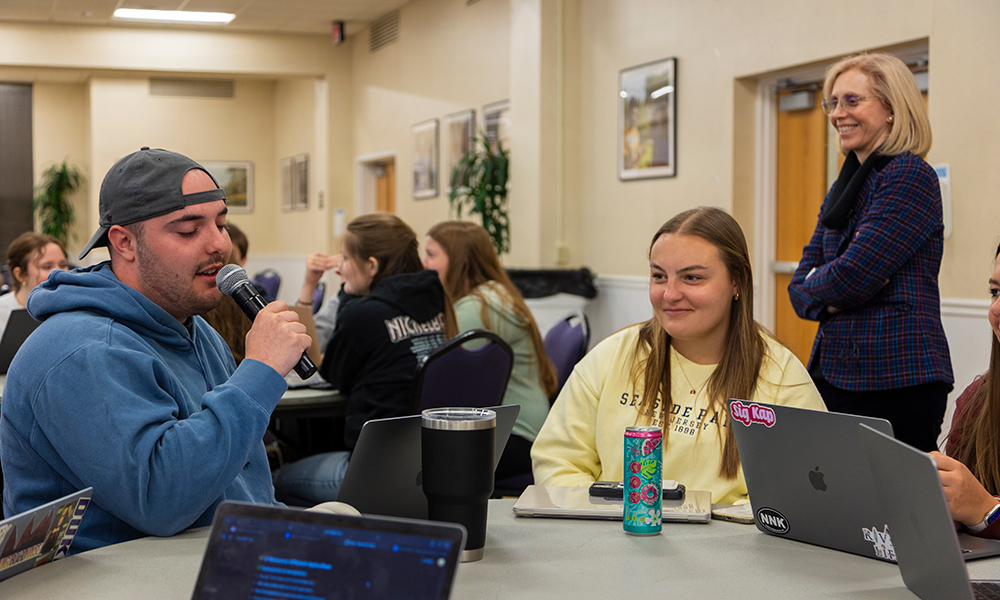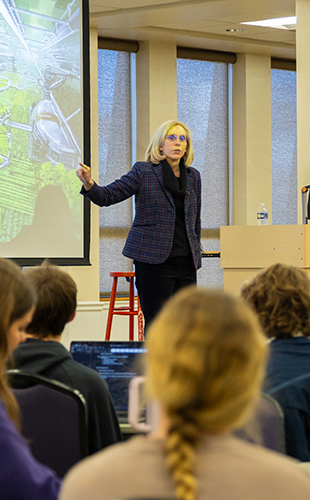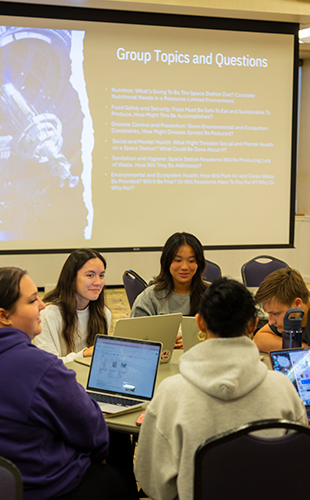CHBS Viewpoints on Health series discusses One Health approach
College of Health and Behavioral Studies
As part of the Viewpoints on Health series, the CHBS Dean’s Office welcomed Dr. Laura H. Kahn, MD, MPH, MPP, to speak with students, faculty and community members about the One Health approach. Dr. Kahn is a physician, policy researcher, educator and author who co-founded the One Health Initiative.
This multi-sectoral and transdisciplinary approach to health recognizes the interconnections between human, animal, plant, environmental and ecosystem health by working at local, regional, national and global levels to achieve optimal health outcomes.
Dr. Kahn held sessions introducing the One Health approach with faculty and students, a session on the teaching of the One Health approach for faculty and a community conversation focused on zoonotic disease preparedness.
 At each of the presentations, Dr. Kahn spoke on the key principles of One Health, which are:
At each of the presentations, Dr. Kahn spoke on the key principles of One Health, which are:
-
interconnectedness of human, animal and environmental health,
-
collaboration across disciplines as essential for finding effective health solutions,
-
prevention and intervention to address health issues at their source, and
-
utilizing systems thinking to consider issues as part of larger systems to foster a deeper understanding of the complex relationship of human, animal and environmental health.
At the community-focused session, Kahn’s presented on preparations for zoonotic diseases, which are diseases transmitted from animals to humans. These include disease that impact our local agriculture, including Avian Flu that has recently infected egg-laying hens and other poultry resulting in egg shortages in grocery stores nationwide.
The session for students, attended by several Health Sciences majors and other students included a discussion exercise where groups of students considered what actions and precautions might be needed for a hypothetical expedition on a space shuttle for several million people. Students worked to identify key processes to support nutrition, disease control, social and mental health, and sanitation while on the spaceship.
Dr. Kahn then related the thought experiment to the conditions on our planet. “We are on a self-contained space shuttle called Earth,” Dr. Kahn told the students. “We need to think about how we can make our resources and waste sustainable.”
 Kahn also encouraged the students to consider their generation’s legacy in protecting our resources on Earth, urging them to “leave ‘Space Station Earth’ in as good or better shape than how you found it.”
Kahn also encouraged the students to consider their generation’s legacy in protecting our resources on Earth, urging them to “leave ‘Space Station Earth’ in as good or better shape than how you found it.”
Freshman Health Sciences major and pre-med student Audrey Navin attended the student-focused lecture as part of her HTH 150 class. She was inspired by the concept of One Health.
“We should all strive for the goals of One Health,” she said. “I’m a big believer in the idea that we are all connected, and this insight gives a name to that concept.”
One way Navin believes connection and change are possible through One Health concepts is through health literacy. “We need more communities educated in health literacy to differentiate between stigma and bias from truth and reality,” she said.
“Even though the environmental crisis is overwhelming, it’s important to stay educated on topics like reducing your carbon footprint and other things you can do to impact the health of your local community,” said Navin.
The College of Health and Behavioral Studies provides the Viewpoints on Health series each academic year to introduce a current, cutting-edge topic for faculty, staff, and students, as well as for curriculum consideration.
